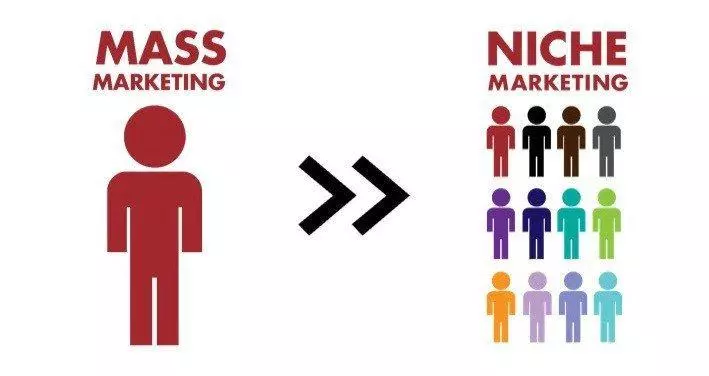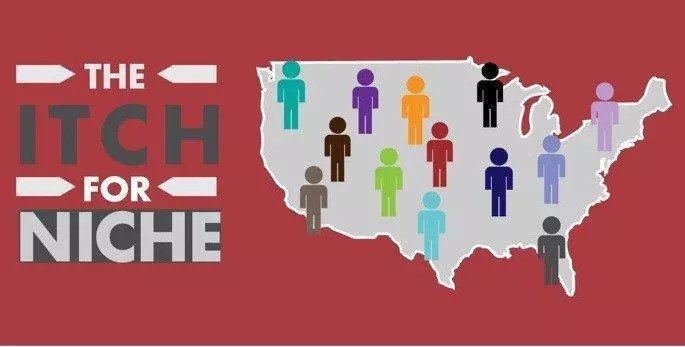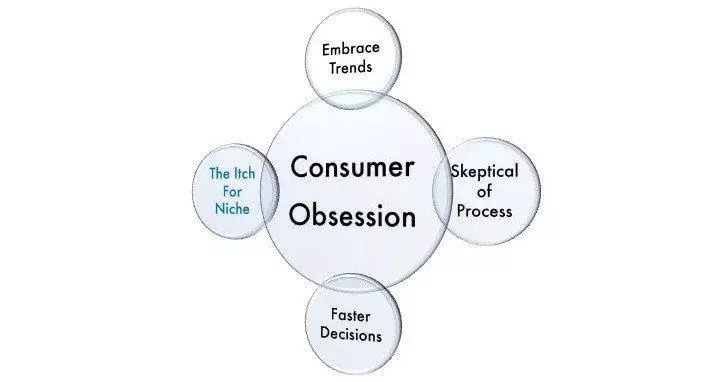Once upon a time… business success was based on providing a narrow segment of consumers with a narrow segment of products, uniquely suited to their needs, sourced and advertised locally, and sold at a local store.
Over time, the spread of mass media - TV, national newspapers and magazines - along with the expansion of national retail stores, and the growth of a global and highly efficient supply chain, led to a world of mass marketing, mass production, and massive retailers. The retail world moved from personalized products for localized, niche markets to mass-produced products for mass markets.
Mass marketers thrive on "must-have" items - huge volumes of single styles, sold across many market segments to an audience of consumers eager to have the item they saw advertised in mass media, and which, in turn are produced in great scale and efficiency.
This Strategy Worked. Until it Didn’t.
Mass brands, mass production, mass retailers and mass advertising serve mass markets. These industries of advertising, retail and supply are highly inter-dependent, and therefor they face today’s disruptive market together; and, together they struggle to find new models and new relevance.
Because, the world changed… today we have too many stores, too much media, and too much product pumping through a highly-efficient global supply chain. This has resulted in an over-supply of mass market goods, which in turn (per macro-economic supply & demand forces) drives down prices and favors off-price stores, branded outlets, and web sites competing for who can sell this over-supply for the lowest price.
Concurrently, the Internet changed the world, too. Google, and Facebook and other information sharing networks allow for the acquisition and application of personalized marketing on an unprecedented scale.
When billions of people search via Google and billions of people share their interests and likes on Facebook they create large numbers of unique communities. These virtual communities become readily accessible niche markets with distinct attributes, attitudes and expectations.
Today, people demand, and can receive, niche brands and products that are intensely relevant to their distinct personal, cultural and situational requirements, products that stimulate a clear emotional response or solve a personal need. By definition, these niches are unique, authentic and passionate, and consumers will pay a higher price for products created specifically for them.

Further, the Internet and the applied use of consumer data, allow even small companies to effectively identify these niches of consumers, and launch new brands and products with precision-targeting, now readily and cost-effectively accessible through YouTube, and Google and Facebook, and online marketplaces including Amazon and Jet.com.
Years ago, there were famous, or infamous, national “must-have” products: Cabbage Patch Dolls, Beanie Babies, the latest Harry Potter book. Yet, the market hasn’t seen a true mass market “must-have” in over 5 years.
“Must-have” products still exist in the new landscape. However, these are must-haves for niche markets - serving specialized regional, ethnic, and interest segments. Today's "must-haves" are laser-focused on Latino working mothers in Southern California, readers of "Fifty Shades of Grey" who also purchased North Face outerwear and live in Illinois, or HO-gauge model-train collectors across America.
Success Has Moved from Mass Markets to Niche Markets
I am going to share a disruptive concept with you. That idea is that we must return to providing a narrow range of products and services to a narrow segment of customers. Only this time, we will leverage emerging technology, powerful consumer data, and a localized, fast, short-run, supply-chain, to pursue many niches at once.
We need… “The Itch for Niche.”

We must move from huge single-style production runs to a large number of smaller, quicker, segmented runs. From 1 million units of one style to 100,000 units of 20 styles, and 10,000 units of 500 styles - a far larger number of units, satisfying a far larger number of customers. And, by delivering products that will be uniquely relevant to consumer's distinct desires, interests and needs, we will provide greater value, deliver greater satisfaction, earn consumer loyalty, and recognize a greater profit.
To win, we should borrow a page from Amazon CEO Jeff Bezos' playbook: obsess over providing customer satisfaction, quickly embrace emerging trends, challenge our legacy processes and make faster decisions.

We must return to our roots, when brands and retailers met their customer’s needs on an intimate, and high-value, level. Only now, with new and emerging technology and big data, we can do so at enormous scale, across many niches and classifications, simultaneously.
Scratch here, "The Itch for Niche."
© 2018, David J. Katz — New York City
---------------------
David J. Katz is chief marketing officer at Randa Accessories, an industry-leading multinational consumer products company, and the world's largest men's accessories business.
His specialty is collaborating with retailers, brands and suppliers to innovate successful outcomes in evolving markets.
David was selected by LinkedIn as a "Top Voice in 2017." He has been named a leading fashion industry "Change Agent" by Women's Wear Daily and a "Menswear Mover" by MR Magazine.
He is a public speaker, co-author of the best-selling book "Design for Response: Creative Direct Marketing That Works" [Rockport Publishers]. He has been featured in The New York Times, The Wall Street Journal, New York Magazine, The Huffington Post, MR Magazine, and WWD.
David is a graduate of Tufts University and the Harvard Business School. He is a student of neurobiology, consumer behavior and "stimulus and response." The name Pavlov rings a bell.







Leave your comments
Post comment as a guest